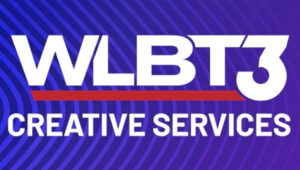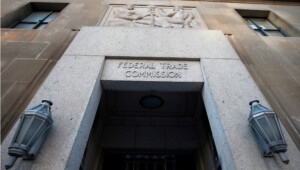The group tells the FCC that cable operators’ contention that broadcasters representing multiple stations through ownership or contractual arrangements have undue leverage is “distorting the record.”
OTA’s Silver Lining Also Has A Looming Cloud

Gray Television CFO Jim Ryan suggests that networks may capture more than half of an affiliate’s retrans consent dollars over time. Right now, he said, a 50-50 split is emerging as the model.
 CBS CEO Leslie Moonves says he’s not losing sleep over Aereo. But DirecTV could bring some restless nights with the amount of money it could ultimately deny broadcasters. The satellite operator’s CFO Patrick Doyle said this week DirecTV has a fully legal way to avoid paying carriage costs — set-top-boxes with an antenna that picks up over-the-air signals. That could save DirecTV a fortune in what is becoming a fast-growing expense.
CBS CEO Leslie Moonves says he’s not losing sleep over Aereo. But DirecTV could bring some restless nights with the amount of money it could ultimately deny broadcasters. The satellite operator’s CFO Patrick Doyle said this week DirecTV has a fully legal way to avoid paying carriage costs — set-top-boxes with an antenna that picks up over-the-air signals. That could save DirecTV a fortune in what is becoming a fast-growing expense.
In his call for a GAO study, the Senate Commerce Committee Chairman says joint sales and shared services agreements that allow a broadcast group to operate multiple stations in markets where the FCC rules say it may own just one might “artificially serve to inflate retransmission consent rates … and drive up subscription fees for pay television consumers.”
Mediacom CEO Rocco Commisso wants a commitment from whoever gets the nod for FCC chairman to act to curb the rising programming fees that cable and satellite pay broadcasters and cable networks.
Aereo May Be Retrans Game Changer
The uproar over the Internet streaming service is just one of the issues covered by Wednesday’s NAB Show panel on the state of retransmission consent.
In Fight Against Viacom, I’m For Cablevision

Happy 20th Birthday To Retrans Consent

Bewkes, Moonves: Redo Carriage Fees

Take Your Cue From Moonves: Skip Dish

Judge Won’t Block Import Of Nexstar Signals
Nexstar Broadcasting fails to convince a Texas judge that its carriage agreement with Time Warner Cable prevents the cable operator from importing its signals into other markets as replacement signals during retrans disputes.
The new Cablevision deal with CBS could set a financial framework for a deal with Tribune, where WPIX in New York has been off homes in a huge portion of the country’s largest market for weeks. CBS will be affected by the standoff, since it is a part owner in the CW network, which is unavailable in many New York homes now.
The omnibus pact includes the CBS O&Os as well as Showtime, the Smithsonian Channel and the CBS Sports Network. It also covers distribution of CBS programming on Cablevision’s VOD and TV Everywhere platforms.
It’s A Long, Hard Road To Retrans Reform
With billions of dollars at stake, cable and satellite operators want to convince Congress to rewrite the law to make it tougher for broadcasters to extract retransmission consent fees from them, but none thinks it will be quick or easy.
Having failed to reach a new retransmission consent agreement with Dispatch Broadcast Group, Dish had to drop its two stations today — WTHR (NBC) Indianaoplis and WBNS Columbus, Ohio (CBS). Dispatch is seeking “exorbitant” hikes in retrans fees, Dish says. Its demands are “fair and reasonable,” counters Dispatch.
Local TV had threatened to pull 21 stations from the satellite service if it couldn’t reach an agreement on retrans fees by midnight tonight. “We are pleased to have reached an agreement with Local TV LLC that we believe is fair and equitable for our customers, who will continue to enjoy Local TV-owned channels without interruption,” said DirecTV said in a statement.
The agreements cover retransmission consent for CBS-owned TV stations and the continued carriage of Showtime, The Smithsonian Channel and The CBS Sports Network. Terms were not disclosed.
TWC Gives Stations A Wake-Up Call
TV station groups should thank Time Warner Cable for the wake-up call. It’s unlikely that station owners will ever again craft a contract without explicit, inarguable language saying their stations cannot be imported into a faraway market.
Numbers Justify Station Retrans Hikes

Dish Network Chairman Charlie Ergen tells a House subcommittee on communications and technology that “local broadcasters are a government-sponsored monopoly.”
DirecTV CEO Michael White said Friday that the company will continue to be aggressive in pushing back against escalating content fees and won’t shy away from station blackouts in the process.
In a letter to the FCC, the station group’s general counsel, Barry Faber, answers claims made in an earlier statement by Mediacom CEO Rocco Commisso.
Advocacy Groups, Cable Target Virtual Duops
In comments to the FCC, a coalition of advocacy groups long opposed to media consolidation and cable operators say shared services agreements and other contractual deals that stop short of ownership, but let broadcasters operate two or even three stations in a market, need to be eliminated. These virtual duopolies, they say, reduce competition and news coverage while giving stations an unfair advantage in retrans negotiations with cable operators.
CEO Leslie Moonves says CBS is just beginning to get its fair share of the programming fees that cable and satellite pay out, he said. “We are watched by a lot more people than a lot of cable networks that get paid a lot more than we do. But having started from zero three years ago, we are in a very good position.”
Sook: Stations Could Get $2 Per Sub Retrans
A NATPE panel offered predictions on the future of retransmission consent at stations. Deb McDermott of Young Broadcasting said that she was not opposed to sharing the retrans revenue with the networks “as long as it is the right division of revenue — as long as they don’t get greedy.” And Nexstar’s Perry Sook suggested that even sending half of the revenue to the networks is not unreasonable.
Sook: Stations Could Get $2 Per Sub Retrans
A NATPE panel offered predictions on the future of retransmission consent at stations. Deb McDermott of Young Broadcasting said that she was not opposed to sharing the retrans revenue with the networks “as long as it is the right division of revenue — as long as they don’t get greedy.” And Nexstar’s Perry Sook suggested that even sending half of the revenue to the networks is not unreasonable.
Retrans Top Of Mind For NBCU’s Harbert
NBC strategy is unlike other retrans deals, in which TV stations are paid a fee by cable operators, satellite operators and telcos. Harbert wants NBC to negotiate those deals for all its affiliates and stations, essentially negotiating by proxy for all of them. He wants NBC to keep a set percentage of that money. “We believe that, with scale, we can maximize revenue,” he says. “I’m not sure I have the answer how to do that, yet. But I’m working on it.”
The American Cable Association says the FCC should require inclusion in station public files “all agreements between separately owned TV stations in the same market, particularly those that facilitate the coordination of retransmission consent negotiations.”
Sponsored by Rep. Steve Scalise (R-La.) and Sen. Jim DeMint (R-S.C.), the Next Generation Television Marketplace Act would repeal the compulsory license, must-carry, retransmission consent and local broadcast ownership limits. NAB turns thumbs down.
Uncovering The Truth About Retrans Value

After talking for nine months on a plan in which NBC would use its clout and scale to negotiate attractive retrans deals with cable and satellite in exchange for a percentage of the revenue, there is still no agreement. But both sides say they’re confident there will be one. The problem is that there is no one-size fits-all formula.
By demanding reverse comp — essentially half of affiliates’ retrans revenue — the Big Four broadcast networks and Univision have tapped a new revenue stream that will grow from $146 million this year to $1.3 billion in 2015, according to a new analysis from SNL Kagan. But there is “good news” for affiliates forced to pay.
Mediacom Communications announced late Friday that it had reached a retransmission consent agreement with LIN Media, resulting in the immediate restoration of nine LIN stations to Mediacom’s cable systems in six markets.
A battle royale is brewing between two entrenched lobbies — the broadcasting and pay TV industries — over how much shows from American Idol to the local news are worth. Like many Washington showdowns, this one boils down to dollars and cents — namely, the hundreds of millions of dollars that cable and satellite companies pay broadcasters to retransmit their signals. But this is one fight that could reverberate well beyond the Beltway. A prolonged impasse this fall could mean blackouts for thousands of TV viewers — putting the heat on Congress and the FCC to get involved.
In an open letter to FCC Chairman Julius Genachowski, NAB President Gordon Smith says “the mere prospect of government intervention introduces uncertainty and distorts incentives in ways that disrupt the bargaining process and only make it more difficult to reach fair and equitable agreements.” He says service disruptions caused by negotiation impasses are the rare exception rather than the rule.
Rival distributors Time Warner Cable and satellite broadcaster DirecTV teamed up to make their case to the FCC for an overhaul the agency’s retransmission consent rules. Representatives of the two companies met with FCC Commissioners Michael Copps and Robert McDowell on Wednesday to discuss the tensions that have arisen over the last few years between broadcasters and multichannel video program distributor over fees broadcasters want in return for carriage of their programming.
 In a letter to FCC Chairman Julius Genachowski, Rocco Commisso, the chairman-CEO of cable operator Mediacom, criticized the regulatory agency for not being aggressive in trying to keep programming costs down. Much of Commisso’s beef is about having to pay broadcasters more in retransmission consent fees to retransmit their TV stations.
In a letter to FCC Chairman Julius Genachowski, Rocco Commisso, the chairman-CEO of cable operator Mediacom, criticized the regulatory agency for not being aggressive in trying to keep programming costs down. Much of Commisso’s beef is about having to pay broadcasters more in retransmission consent fees to retransmit their TV stations.
Retrans Sharing Holding Back Station Sales
While most agree that the networks’ claims on a chunk of affiliates’ retrans revenues are reasonable, the sticking point is how much. And since stations are valued on the basis of a multiple of cash flow, if a station has to trim its cash flow to pay programming fees to networks or share retrans revenue with them, it devalues the station. All of this is making it difficult to calculate how much stations are worth and is putting a damper on deal-making.
After Nexstar wouldn’t agree to its retrans sharing demands, Fox moved its affiliation in Springfield, Mo., from KSFX to Ted Koplar’s MNT affiliate. He plans to run both networks’ primetime programming — Fox at 7-9 p.m. and MNT at 9-11 p.m. — and is seriously considering adding local news to the mix.









































